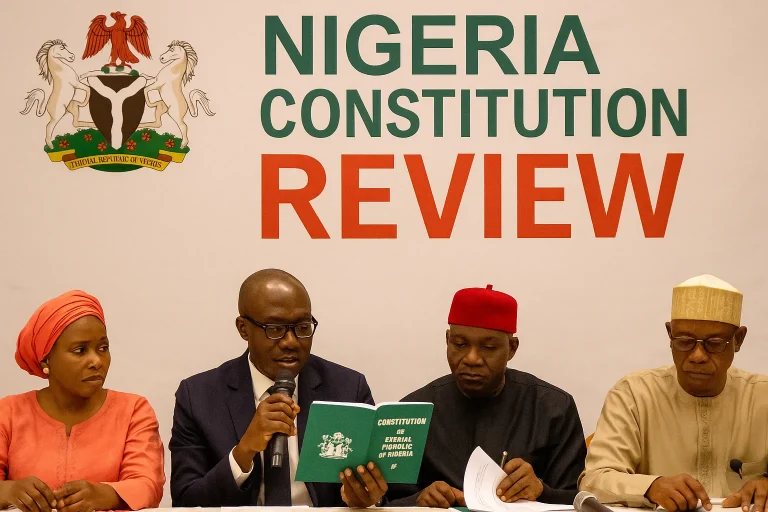The call for the creation of Kainji State took center stage on Saturday during the North West Centre B public hearing on constitutional amendment held in Sokoto, as community leaders, traditional institutions, and civil society advocates rallied for a state that would unite long-separated but closely bonded communities.
The proposed Kainji State, which would be carved from parts of Kebbi and Niger States, seeks to bring together the Zuru, Borgu, and Kontagora Emirates—regions that share deep-rooted historical and cultural ties.
Leading the advocacy, Retired Air Vice Marshal (AVM) Sallau Bala, who is also the National President of the Zuru Emirate Development Society, told the gathering that the demand for Kainji State is not new.
“This agitation dates back to the colonial era, when arbitrary boundaries divided our people,” Bala explained. “The Borgu, Kontagora, and Zuru Emirates have always longed to reunite under a single administrative entity to pursue shared development goals.”
Bala described Kainji State as not just a political idea, but a reflection of a common identity and aspiration. “It is a vision anchored on unity, peace, and economic potential. Our people—diverse in religion and ethnicity—are united in this cause,” he said.
He highlighted that the proposed state, with an estimated population of 3.4 million and a landmass of over 47,000 square kilometers, would be larger than at least ten existing Nigerian states.
Gobir state movement gains momentum
Another major presentation at the hearing came from advocates of Gobir State. Professor Mu’azu Shamaki, Secretary of the Gobir Development Association, presented the case for a new state to be created from eight local government areas in eastern Sokoto State.
According to Prof. Shamaki, Gobir State would be home to about 3.5 million people and is rich in both human capital and mineral resources. He emphasized that key infrastructure such as the Goronyo and Lugu dams and the Bunsuru River could drive agricultural and economic development in the region.
“The Gobir Kingdom predates the Jihad of Shehu Danfodiyo and carries a unique historical and cultural legacy,” he said. “Yet the area continues to suffer from poor infrastructure and inadequate representation. State creation will help address these challenges and bring government closer to the people.”
Broader constitutional issues on the table
Beyond state creation, the Sokoto hearing also gave room for diverse voices to be heard on a wide range of national issues. Citizens and representatives from Sokoto, Kebbi, and Zamfara States submitted memoranda touching on key constitutional concerns—such as devolution of powers, local government autonomy, state policing, electoral and judicial reforms, and fairer revenue allocation.
Speakers stressed the need for a constitutional framework that reflects Nigeria’s federal diversity and responds to the unique needs of its various regions.
The Sokoto session was one of several zonal public hearings held simultaneously across the country, as part of the National Assembly’s ongoing process to amend the 1999 Constitution. The sessions are being coordinated by the Senate and House of Representatives Committees on Constitution Review.
By Usman Mohammed Binji


